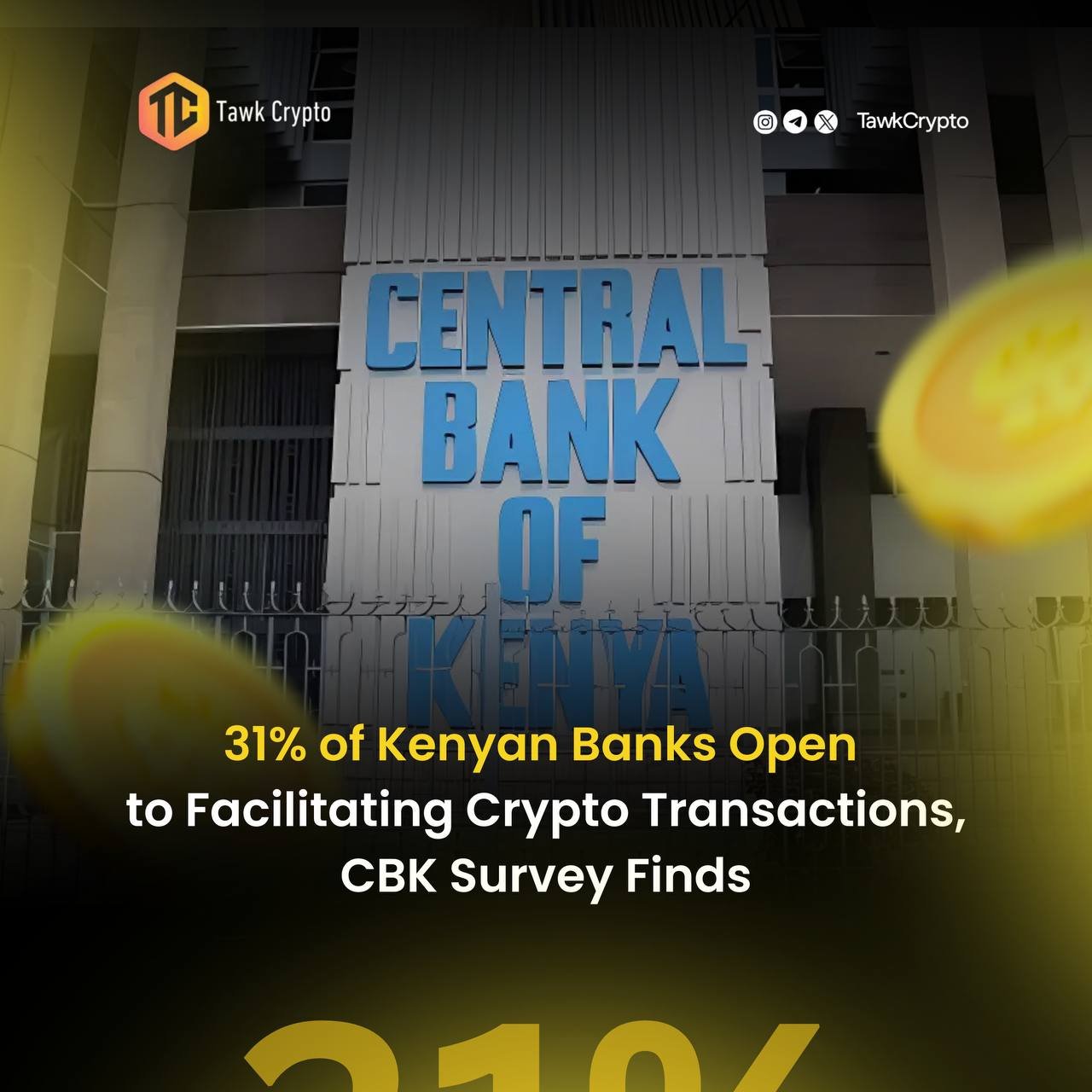

31% of Kenyan Banks Open to Facilitating Crypto Transactions, CBK Survey Finds
Central Bank survey marks a shift in Kenya’s financial landscape as KRA collects $77M from crypto taxes, prompting calls for a clear regulatory framework.
A new survey by the Central Bank of Kenya (CBK) reveals that nearly a third of Kenyan banks are open to supporting virtual asset transactions, signaling a significant shift in the country’s traditional financial sector amid rising demand for digital assets.
The survey, conducted by the CBK, shows that 31% of commercial banks expressed willingness to engage in partnerships with Virtual Asset Service Providers (VASPs) and facilitate cryptocurrency-related services. However, most institutions emphasized that such collaborations would be contingent on the existence of a clear legal and regulatory framework.
“There was a general willingness by most banks to partner with VASPs in offering crypto-related services, provided there exists a legal and regulatory framework,” the CBK said in its findings.
Growing Momentum Amid Regulatory Gaps
This growing openness among Kenyan lenders comes at a time when crypto trading remains largely unregulated in the country. Despite this, adoption is surging—particularly among businesses looking to hedge against the volatile Kenyan shilling and navigate a persistent shortage of U.S. dollars.
Many local companies have turned to stablecoins like Tether’s $USDT and Circle’s $USDC to settle cross-border payments, highlighting crypto’s rising role in Kenya’s trade and finance ecosystem.
To address regulatory uncertainty, the CBK and the Capital Markets Authority (CMA) have formed a joint technical working group. The group is tasked with evaluating the extent of crypto adoption and crafting a framework for oversight, licensing, and integration with the formal financial sector.
Kenya’s First-Ever Crypto Tax Revenue
The Kenya Revenue Authority (KRA) announced that it had collected approximately KES 10 billion (~$77 million) in taxes from crypto users in 2023. This marks the first reported instance of revenue from the crypto sector in Kenya’s history. The taxes were applied to capital gains realized from cryptocurrency transactions.
This milestone suggests that the government is beginning to recognize crypto as a legitimate financial activity, even in the absence of formal regulations.
From Warnings to Engagement
While the CBK has previously issued warnings about the risks of digital currencies, including fraud, volatility, and the lack of consumer protections, the latest survey indicates a changing tone. With growing pressure from both the private sector and international trends, Kenyan regulators appear to be laying the groundwork for a more structured and inclusive crypto policy.
The developments put Kenya on a path similar to that of other emerging markets, where traditional financial systems are adapting to meet the needs of a digital economy driven by innovation, remittances, and financial inclusion.
Kenya is at a crypto crossroads. With 31% of banks ready to support digital asset services and billions already flowing through the sector, a comprehensive regulatory framework may soon be on the horizon.







